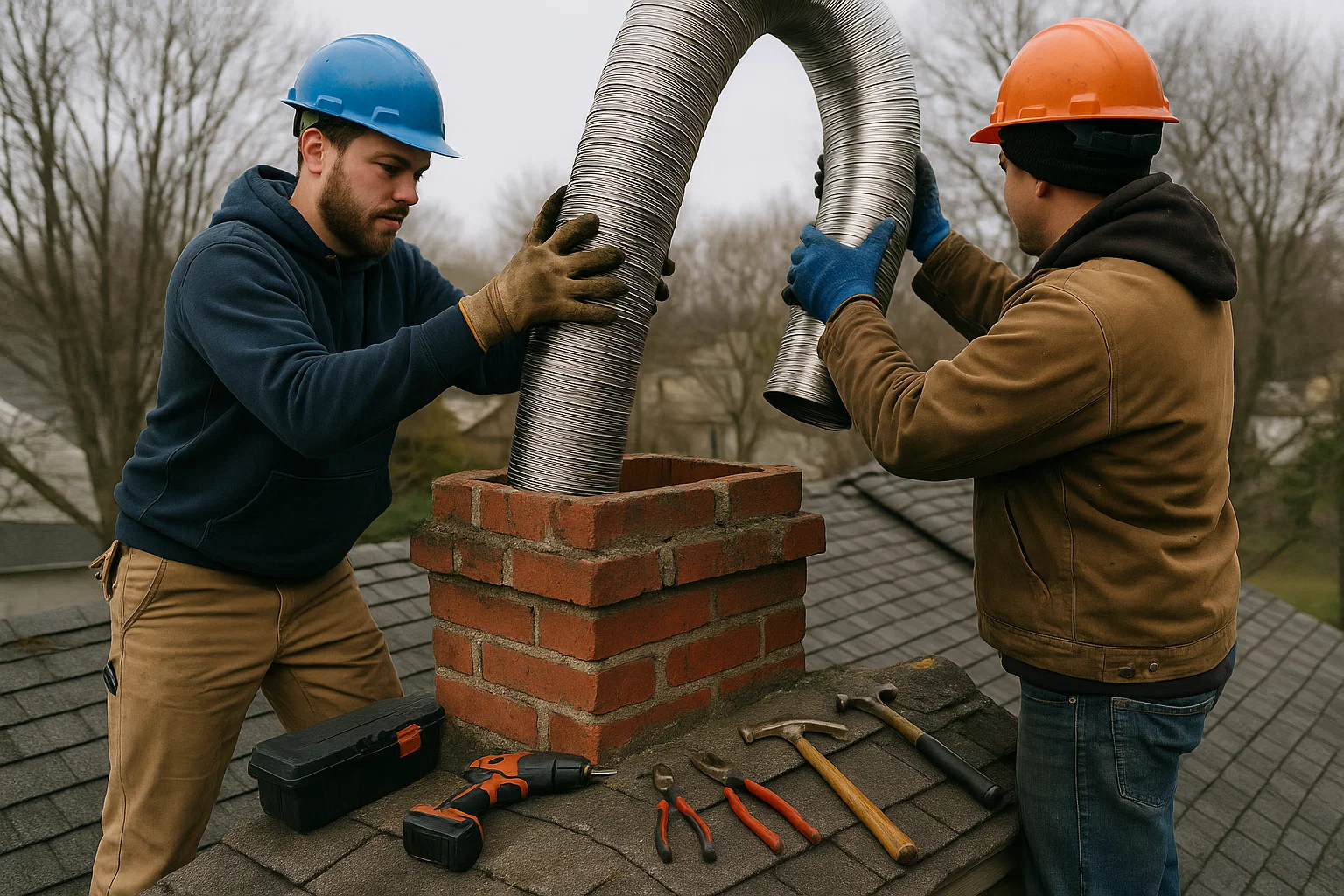If you live in Birmingham, Alabama, you know the weather can be a bit of a wild card—hot, sticky summers and the occasional chilly, damp winter night. When it comes to keeping your home safe and cozy, especially if you use a fireplace or wood stove, it’s crucial to have the right chimney liner. But with so many types out there, how do you know which one can handle Birmingham’s unpredictable climate? Let’s walk through what you need to know, step by step, without drowning in technical terms.
Key Features: What Makes a Good Chimney Liner?
Not all chimney liners are made equal, and they each have their own strengths. Some are built tough for wild temperature swings; others are designed for specific fuels or easy cleaning. In Birmingham, you want a liner that can stand up to heavy summer humidity and damp winter days. The main options include clay tile, metal (usually stainless steel), and cast-in-place liners. Let’s break down the basics in a simple table:
| Type | Durability | Best For | Maintenance | Climate Suitability |
|---|---|---|---|---|
| Clay Tile | Lasts decades if undamaged | Traditional masonry chimneys | Needs regular inspection | Not ideal for damp or freeze-thaw cycles |
| Stainless Steel | Very strong, resists corrosion | All fuel types, older chimneys | Easy to clean | Excellent for humid, changing weather |
| Cast-in-Place | Forms a seamless, insulated layer | Repairing old, damaged flues | Minimal upkeep | Good insulation for variable temps |
Safety First: Protecting Your Home and Air
The main job of a chimney liner is to keep smoke, carbon monoxide, and flames where they belong—out of your living room and away from your walls. In Birmingham, the combination of humidity and the rare cold snap can cause some liners (like old clay tiles) to crack or shift. Stainless steel liners are a favorite here because they’re tough as nails and don’t rust, even when the air gets muggy. Cast-in-place liners are also a solid choice, since they create a smooth, insulated tunnel that blocks leaks, no matter how wild the weather gets.
“A chimney liner isn’t just a piece of equipment—it’s your home’s invisible shield against fire and toxic fumes.”
Counting the Cost: Budgeting for a Chimney Liner
Let’s be honest—nobody likes surprise expenses, especially when it comes to home repairs. Clay tile liners are usually the cheapest up front, but if your chimney is older or has suffered from Alabama’s humidity, you might be facing repairs sooner than you’d like. Stainless steel costs a bit more initially, but you’ll likely save money in the long run because it doesn’t break down easily. Cast-in-place liners are typically the most expensive, but if you have a chimney that’s seen better days, it might be the only way to make it safe again. Always remember, the right liner is an investment in your family’s safety and your home’s value.
When Every Minute Counts: Emergency Services Matter
Sometimes life throws curveballs—a chimney fire, a sudden storm, or unexpected damage. In these moments, having a liner that’s easy to inspect and repair can be a lifesaver. Stainless steel shines here; it’s quick to check for problems and often simple to replace a damaged section. Cast-in-place liners, once installed, rarely need emergency fixes, but if they do, it’s best to call in the pros right away. With Birmingham’s mix of weather, it’s smart to know who to call if things go sideways.
Frequently Asked Questions
- Q: How do I know if my chimney liner needs replacing?
A: If you notice crumbling bits in your fireplace, smell smoke indoors, or have trouble starting a fire, it could be time for a checkup. - Q: Which type of liner works best for wood-burning stoves?
A: Stainless steel liners are usually the top pick for wood stoves, especially in humid places like Birmingham. - Q: Are there any liners that don’t require much maintenance?
A: Cast-in-place liners are low-maintenance, but every chimney needs an annual inspection. - Q: What if my home has an older chimney?
A: Stainless steel liners are flexible and can be custom-fit to older or oddly-shaped flues. - Q: Can I install a chimney liner myself?
A: It’s always safer to call in a pro—chimney work can be tricky, and you want it done right.
No matter what sort of fireplace or stove you have, picking the right Chimney Liners for Birmingham’s unique climate will keep your home safer and your fires burning bright, all year long.
Conclusion: Choosing with Confidence
In the end, every Birmingham home is a little different. The best chimney liner for you depends on your fireplace, your budget, and how much maintenance you’re willing to do. Stainless steel is a solid all-rounder for our humid, ever-changing weather, while cast-in-place offers peace of mind for older chimneys in need of a serious upgrade. Remember, your chimney liner is more than just a hidden part of your house—it’s a key player in keeping your home warm, safe, and ready for whatever Alabama’s skies throw your way.
Read more : Birmingham Chimney Sweep

